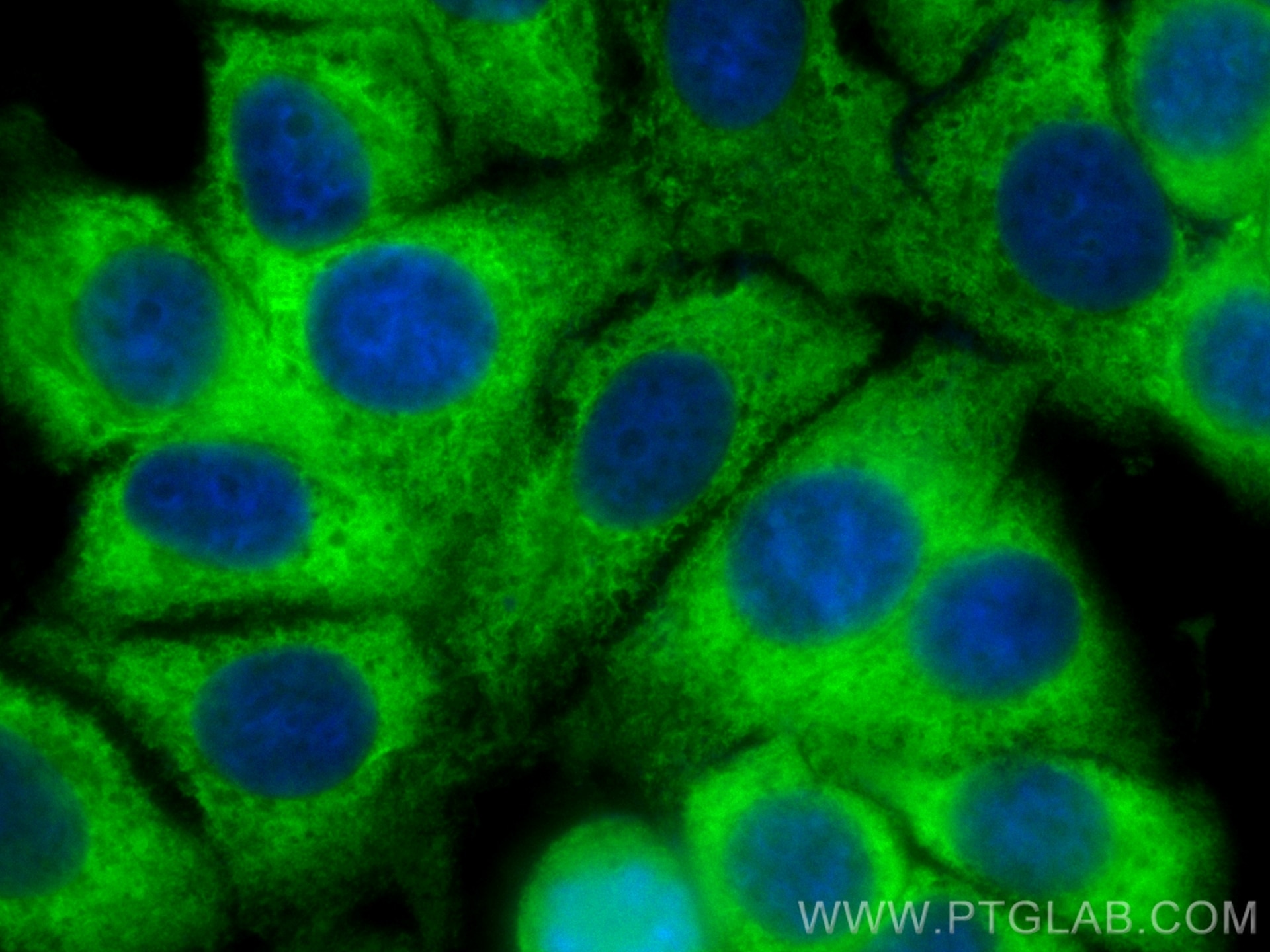Tested Applications
| Positive IF/ICC detected in | MCF-7 cells |
Recommended dilution
| Application | Dilution |
|---|---|
| Immunofluorescence (IF)/ICC | IF/ICC : 1:50-1:500 |
| It is recommended that this reagent should be titrated in each testing system to obtain optimal results. | |
| Sample-dependent, Check data in validation data gallery. | |
Product Information
CL488-83251-2 targets NRG1, isoform Alpha in IF/ICC applications and shows reactivity with human samples.
| Tested Reactivity | human |
| Host / Isotype | Rabbit / IgG |
| Class | Recombinant |
| Type | Antibody |
| Immunogen | NRG1, isoform Alpha fusion protein Ag35114 Predict reactive species |
| Full Name | neuregulin 1 |
| Calculated Molecular Weight | 70 kDa |
| Observed Molecular Weight | 70 kDa |
| GenBank Accession Number | BC007675 |
| Gene Symbol | NRG1 |
| Gene ID (NCBI) | 3084 |
| RRID | AB_3673227 |
| Conjugate | CoraLite® Plus 488 Fluorescent Dye |
| Excitation/Emission Maxima Wavelengths | 493 nm / 522 nm |
| Form | Liquid |
| Purification Method | Protein A purification |
| UNIPROT ID | Q02297 |
| Storage Buffer | PBS with 50% glycerol, 0.05% Proclin300, 0.5% BSA, pH 7.3. |
| Storage Conditions | Store at -20°C. Avoid exposure to light. Stable for one year after shipment. Aliquoting is unnecessary for -20oC storage. |
Background Information
Neuregulin 1 (NRG1) is a trophic factor that has been implicated in neural development, neurotransmission, and synaptic plasticity. NRG1 has multiple isoforms that are generated by usage of different promoters and alternative splicing of a single gene. NRG1 and its receptor ErbB tyrosine kinase are expressed not only in the developing nervous system, but also in the adult brain. The immunogen of this antibody is against NRG1 isoform Alpha.
Protocols
| Product Specific Protocols | |
|---|---|
| IF protocol for CL Plus 488 NRG1, isoform Alpha antibody CL488-83251-2 | Download protocol |
| Standard Protocols | |
|---|---|
| Click here to view our Standard Protocols |



